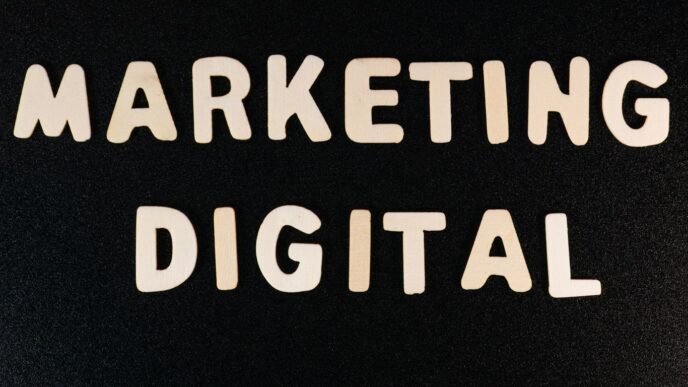Life throws some curveballs, right? We all hit points where the path forward isn’t clear, and the choices we have to make feel pretty heavy. It’s like standing at a crossroads with no map, and honestly, that can be a bit unsettling. This article is all about those tough decisions, looking at why they’re so hard and how we can get better at making them. We’ll check out some real-life examples and talk about ways to handle the stress that comes with them, so we can move forward with a bit more confidence.
Key Takeaways
- Tough decisions often involve balancing personal needs with responsibilities, making difficult medical choices, handling relationship issues, and managing financial situations.
- Ethical quandaries can put us in tough spots, like choosing between telling the truth or staying loyal, or deciding between strict justice and showing mercy.
- Major life choices, such as picking a career path, deciding about family, or dealing with big life changes, are often difficult but shape our future.
- Decisions become hard because of our fear of the unknown, worrying about what might happen, and feeling attached to people or things.
- To make better choices, we need to clearly define the problem, gather info, weigh options, act on our decision, and manage any anxiety, learning from each experience.
Navigating Personal Crossroads
Life throws curveballs, and sometimes we find ourselves at a crossroads where the path forward isn’t clear at all. These are the moments that really make you pause and think. It’s not just about picking between two options; it’s about weighing what truly matters to you.
Balancing Career Aspirations and Family Life
This is a big one for so many people. You might have a job that’s really taking off, maybe requiring more hours or even a move. But then there’s your family – kids who need you, a partner you want to spend time with, or aging parents who need support. It feels like you can’t have it all, right? Deciding where to focus your energy can be incredibly tough. Do you take the promotion that means more travel, or do you stay put and potentially miss out on career advancement? It’s a constant juggle, and there’s no single right answer. Sometimes, it means having honest conversations with your family about what everyone needs and what sacrifices can be made. It’s about finding a balance that feels right for your unique situation, even if it’s not perfect.
Making Critical Medical Treatment Choices
When health is on the line, decisions become even more serious. Imagine being told you have a serious illness and then being presented with several treatment options. Each option might have different success rates, side effects, and recovery times. You have to consider not just the medical facts but also how each choice will impact your quality of life and your loved ones. Do you go for the aggressive treatment with a higher chance of success but also more severe side effects, or a less intense option that might offer more comfort but less certainty? It’s a deeply personal journey, and often involves leaning on medical professionals for information while trusting your own instincts about what you can handle. Talking openly with your family about these choices is also key, as they will be part of the support system sharing the positive message.
Addressing Relationship Dilemmas
Relationships, whether romantic, familial, or friendships, are complex. Sometimes, you face situations where you have to decide whether to stay or go, or how to mend a broken connection. Maybe a long-term relationship has hit a rough patch, and you’re wondering if counseling is the answer or if it’s time to move on. Or perhaps a friend has repeatedly let you down, and you need to decide if the friendship is worth the hurt. These decisions often involve a lot of emotional investment. You have to consider the history, the good times, and the potential future, all while acknowledging the present difficulties. It’s about being honest with yourself and the other person about what you need and what you’re willing to work on.
Managing Financial Crossroads
Money plays a huge role in our lives, and financial decisions can be really stressful. Think about big choices like whether to take out a loan for further education, invest a significant amount of money in a new business venture, or even just deciding how to best save for retirement. Each option has its own set of risks and rewards. A risky investment might offer a big payout, but it could also mean losing everything. Taking on debt for education could open doors, but it also means years of repayment. These decisions often require a lot of research and careful consideration of your long-term goals versus your immediate needs. It’s about understanding your financial situation and making choices that align with your overall life plan.
Confronting Ethical Quandaries

Sometimes, life throws you curveballs that aren’t just about personal preference; they’re about right and wrong, and the lines can get really blurry. These are the moments that test our character, forcing us to pick between conflicting moral principles. It’s not always easy to know what to do when your gut feeling clashes with what seems like the ‘correct’ action according to rules or expectations.
Truth Versus Loyalty Dilemmas
This is a classic bind. You know something, and telling the truth might mean betraying someone you’re loyal to, or even your company. Think about an employee who discovers their boss is fudging numbers. Do they report it, staying true to honesty but potentially losing their job and causing trouble for colleagues? Or do they stay quiet, maintaining loyalty but compromising their integrity? It’s a tough spot, and there’s no simple answer that satisfies everyone. Sometimes, the choice involves professional secrecy, like when a doctor learns something from a patient that could prevent harm to others, but they’re bound by patient confidentiality. It really makes you think about where your primary obligation lies.
Justice Versus Mercy Decisions
Here, we wrestle with fairness versus compassion. Should someone face the full consequences of their actions, or is there room for leniency? Imagine a judge deciding the sentence for a young person who committed a crime. The law might call for a harsh penalty, reflecting justice for the offense. But what if the person shows genuine remorse, has a difficult background, or it’s their first offense? Showing mercy might feel more humane, but does it undermine the principle of justice? This plays out in many areas, from academic misconduct where a professor might give a student a second chance, to policymakers deciding on social welfare benefits – strict rules for fairness, or flexible ones to help those truly in need.
Short-Term Gains Versus Long-Term Consequences
This dilemma is all about immediate rewards versus future impact. A business might cut corners on safety to save money and boost profits right now. That’s a short-term gain. But what happens if an accident occurs down the line because of those shortcuts? The long-term consequences could be severe: damaged reputation, legal trouble, and loss of customer trust. It’s like choosing to eat a whole cake now and deal with the consequences later, but with much higher stakes. We often have to weigh what feels good or beneficial immediately against what might cause problems down the road. Making informed choices requires looking beyond the immediate situation, and sometimes seeking advice from experienced professionals can help avoid common pitfalls.
These situations highlight that ethical decision-making isn’t just about following a rulebook; it’s about careful thought, considering different perspectives, and understanding the potential ripple effects of our choices.
Facing Life-Altering Decisions
Sometimes, life throws curveballs that aren’t just minor inconveniences; they’re major shifts that can change the whole direction of your life. These are the big ones, the decisions that feel like standing at a fork in the road with no clear signs. It’s not just about picking a different route; it’s about choosing which path you’ll build your future on.
Choosing Educational and Career Paths
This is a classic, right? Deciding what to study in college or what career to pursue can feel like setting your life’s trajectory in stone. It’s not just about picking a major; it’s about thinking about what kind of work you’ll do, how you’ll make a living, and what kind of lifestyle that might afford you. Do you go for the stable, well-paying job that might not excite you, or the passion project that could lead to financial uncertainty? It’s a balancing act that many people grapple with for years.
Deciding on Starting a Family
This is another huge one. Bringing a child into the world is a massive commitment, both emotionally and financially. It means rethinking your career, your living situation, and your entire daily routine. Do you wait until you’re financially secure? Do you have it when you’re younger to have more energy? Or do you wait until your career is more established? There’s no single right answer, and the timing can feel incredibly pressured.
Navigating Major Life Changes
Life changes happen, and sometimes you have to actively decide to make them. Think about moving to a new city for a job or a relationship. Or maybe it’s deciding to change careers entirely after years in one field. Even something like retiring early or taking a sabbatical can be a massive decision that requires a lot of planning and courage. These aren’t small tweaks; they’re complete overhauls of your current life, and they often come with a mix of excitement and serious apprehension.
Understanding Why Decisions Become Difficult
Life throws us curveballs, doesn’t it? Sometimes, it feels like we’re just cruising along, and then BAM! A big decision lands in our lap. It’s not like picking what to have for lunch; these are the choices that make you pause, maybe pace around the room a bit. So, what makes some decisions feel like climbing Mount Everest in flip-flops?
The Impact of Fear of the Unknown
Honestly, a lot of it comes down to not knowing what’s on the other side. Think about it: you’re standing at a fork in the road, and one path is familiar, maybe a little boring, but you know what to expect. The other path? It’s shrouded in fog. You have no idea if it leads to a beautiful meadow or a swamp. That uncertainty is a major roadblock. We start asking "What if?" a million times. What if I pick the wrong career? What if this new relationship doesn’t work out? What if I regret this later? This fear can freeze us, making it super hard to take that first step.
Weighing Potential Consequences
Then there are the consequences. Every choice we make is like setting off a chain reaction of dominoes. Some decisions have immediate effects, while others ripple out for years. Imagine deciding whether to take a job that pays more but requires you to move far away from your family and friends. On one hand, there’s the financial gain and career advancement. On the other, there’s the potential loneliness and missing out on family events. It’s this balancing act, trying to predict all the possible outcomes, good and bad, that makes things so complicated. It feels like you need a crystal ball to get it right.
The Role of Emotional Attachment
And let’s not forget our feelings. We get attached to people, places, and even things. Sometimes, a decision means letting go of something or someone we deeply care about. Think about ending a long-term relationship or selling a childhood home. Even if logically you know it’s the right move, the emotional ties make it incredibly painful. These feelings can cloud our judgment, making it hard to think clearly. We might feel guilty, sad, or scared of being alone, and those emotions can really get in the way of making a rational choice.
Strategies for Difficult Decision Making
Defining the Problem and Clarifying Goals
Okay, so you’ve got a tough choice to make. The first thing you really need to do is figure out exactly what the problem is. It’s like standing at a fork in the road; you need to know which path you’re trying to take. What decision are you actually facing? Once you know that, think about what you want to achieve. What’s the end goal here? Having clear objectives helps you pick the right direction. It’s not just about picking something, it’s about picking the right something for you.
Gathering Information and Evaluating Options
Next up, you gotta do your homework. This means looking around, asking questions, and finding out as much as you can about your choices. Think of it like packing for a trip – you want to know what the weather will be like and what you’ll need. For each option, try to list out the good stuff and the not-so-good stuff. A simple table can really help here:
| Option | Pros | Cons |
|---|---|---|
| Option A | Benefit 1, Benefit 2 | Drawback 1, Drawback 2 |
| Option B | Benefit 1, Benefit 2 | Drawback 1, Drawback 2 |
This way, you can see things side-by-side and get a clearer picture of what each path might bring.
Putting Decisions into Action and Sticking to Them
Once you’ve made your choice, it’s time to actually do something about it. Don’t just let it sit there. Make a plan for how you’ll make it happen. And here’s the tricky part: try to stick with it. Life happens, and things might get bumpy, but if you’ve thought it through, give your decision a real chance. It’s easy to second-guess yourself, but changing your mind too quickly can be just as bad as not deciding at all.
Dealing with Anxiety and Seeking Support
Let’s be real, making big decisions can be stressful. You might feel worried or anxious, and that’s totally normal. It’s like getting ready for a big exam – a little nervousness is expected. When those feelings pop up, try taking a few deep breaths. Sometimes just talking it over with a friend, family member, or even a professional can make a huge difference. They might see things you don’t, or just listening can help you feel less alone. Remember, you don’t have to figure everything out by yourself.
Learning from Life’s Tough Choices
Life throws curveballs, and sometimes the choices we have to make feel like trying to hit a home run in a hurricane. It’s easy to get caught up in the stress of it all, but looking back is where the real learning happens. Think of it like reviewing game footage after a tough match; you see what worked, what didn’t, and how you can play better next time.
Recognizing Personal Growth Through Challenges
Every difficult decision you face is a chance to grow. When you push through something hard, you learn about your own strength. It’s not always obvious at the time, but these moments build resilience. You might find you’re more capable than you thought, or that you can handle pressure better than you expected. This process helps you understand yourself more deeply, showing you what you truly value and what you’re willing to stand for. It’s like finding out you can run a marathon even when you only ever jogged around the block before.
Extracting Lessons from Outcomes
Once you’ve made a choice and seen where it leads, take a moment to really think about it. Did things turn out as you hoped? If yes, great! Figure out what you did right so you can repeat it. If not, that’s okay too. Those less-than-ideal outcomes are often the best teachers. What went wrong? What could you have done differently? This isn’t about beating yourself up; it’s about gathering information. For example, if a career change didn’t pan out, maybe you learned you need more specific training or that the industry wasn’t a good fit. These insights are gold for future decisions. It’s important to remember that sometimes, even when things don’t go as planned, they can still lead to unexpected positive turns in your life. You might discover new paths or meet people who change your perspective, much like how making a difficult choice about family care might lead to a stronger support network [ff07].
Improving Decision-Making Skills Over Time
Getting better at making tough choices is a skill, and like any skill, it improves with practice. The more you reflect on your past decisions, the more you’ll start to see patterns in how you approach problems. You can start to identify your own biases or common pitfalls. This self-awareness is key. Try keeping a simple journal where you jot down the decision, your thought process, and the outcome. Over time, you’ll build a personal library of lessons learned. This makes future decisions feel less daunting because you’re not starting from scratch; you’re building on experience. It’s about becoming a more confident and capable decision-maker, one choice at a time.
Wrapping Up: Making Your Way Through Tough Choices
So, we’ve looked at some pretty heavy stuff, right? Life throws these curveballs, and sometimes you just have to pick a path, even when it feels like you’re walking blindfolded. Remember, there’s no magic formula to get every decision perfect. The real win is in actually making a choice and then being ready to roll with whatever happens next. It’s way better than just getting stuck, unable to move forward. Keep learning from what you decide, trust your gut, and know that each choice, good or bad, is just part of your own story. You’ve got this.
Frequently Asked Questions
What makes a decision really hard to make?
Decisions get tough when you don’t know what will happen, worry about the results, or feel very attached to something. It’s like standing at a fork in the road with no signs, and you’re not sure which way to go.
How can I make a tough choice easier?
First, clearly figure out what the problem is and what you want to achieve. Then, gather information, look at all your choices, and think about the good and bad parts of each. Talking it over with someone you trust can also help a lot.
What if I’m scared of making the wrong decision?
It’s normal to feel worried! Think of it this way: every choice is a chance to learn. If a decision doesn’t turn out perfectly, it’s not a failure, it’s a lesson. Try to see the unknown not as scary, but as an adventure.
Is it okay to feel stressed when making big decisions?
Absolutely! Feeling nervous or stressed is a normal part of facing tough choices. Take deep breaths, break down the decision into smaller steps, or take a short break to clear your head. You’re not alone in feeling this way.
How do past decisions help me make future ones?
Looking back at your choices helps you understand how you make them and what you learn. Good choices can be celebrated, and ones that didn’t work out so well teach you valuable lessons. This helps you get better at making choices over time.
Why is it important to actually make a decision and not just think about it?
Making a decision and acting on it is like starting a journey. Even if you’re not sure about the path, taking action moves you forward. It’s better to decide and learn as you go than to get stuck and not move at all.














